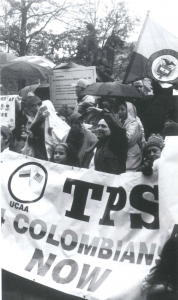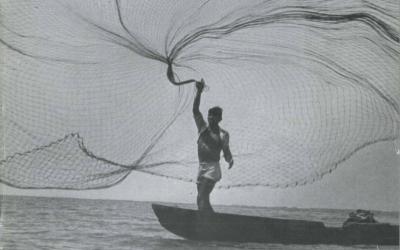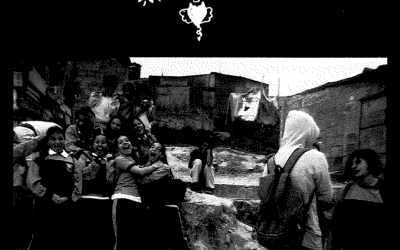Bajucol

Colombian youth protesting in Boston. Photo courtesy of Zilia Castrillon.
The curtain goes up, and to the beat of mapale, a group of youngsters start their annual dance performance. The Colombian Youth Folklore Ballet (Bajucol), a group of Colombian adolescents and young adults in Boston, is led by Miguel Vargas, a Colombian financial professional who loves dancing. Bajucol brings together about 20 youngsters ages 14-24 twice a week to rehearse different traditional Colombian dances. They plan and practice for occasional presentations and for their annual show (one drew about 1,000 people) in Boston. Parents help with the customs, the flower arrangements and with encouragement to their children. Youth learn about the origins of the dances, the customs, and the celebrations when they are performed. In this way, Bajucol helps them reinstate and shape a different Colombian identity for themselves that at the same time promotes a positive image of Colombian culture to others and for others. This is especially powerful because dancing becomes a buffer against drug-related stigma and provides a supportive place to meet with peers.
Most of these youth have lived in Boston for fewer than six years and some have been born to Colombian parents. Bajucol provides a supportive place to establish positive relationships with peers and adults, such as, Miguel who the kids refer to as a father figure. For the newly arrived, Bajucol becomes a supportive environment while they adapt to the U.S. In the context of the U.S. where there are mixed messages about immigrants, either making them exotic, a threat or the object of racial discrimination, alternative cultural and artistic representations make such negative messages palatable for both youngsters and others.
During 1999—2001 the group inspired Colombian professionals to get involved with planning the annual show, allowing Bajucol to become a fertile space for a mentoring program. Professionals had the opportunity to interact and learn from the youngsters, gaining some understanding of the challenges that immigrant youth go through in the U.S.
In the context of the Colombian diaspora, Bajucol became a “safe place” where Colombians from different class backgrounds interacted and learnt from each other. Especially during the two years that the group of the professionals participated and collaborated with the group Bajucol, the circulation of social capital in terms of knowledge, networks, and material resources were utilized by the group. An example is a Colombian professional at the Berklee School of Music who negotiated with the university an internship with Bajucol. During her year-long internship she participated and helped put together the annual show; brought professional musicians to perform along with the youngsters; and brought her expertise in helping coordinate the other professionals.
While the youngsters were being taught, their families were exposed to other resources as well. Given their expressed need to learn about legal issues related to immigration, the mentoring portion of the intervention brought a panel of lawyers and educators to inform their youngsters and their families about the topic. While this meeting served families by providing education about the topic, it also exposed other Colombian professionals to the difficulties some of the families have to endure in this country. Initiatives like Bajucol and the effort of Miguel Vargas are great examples of how to bring together youth, adults and the larger Colombian community to feel connected to the Colombian reality in different ways.
Related Articles
Editor’s Letter
This is a celebratory issue of ReVista. Throughout Latin America, LGBTQ+ anti-discrimination laws have been passed or strengthened.
Editor’s Letter: Colombia
When I first started working on this ReVista issue on Colombia, I thought of dedicating it to the memory of someone who had died. Murdered newspaper editor Guillermo Cano had been my entrée into Colombia when I won an Inter American…
Photoessay: Shooting for Peace
Photoessay: Shooting for PeacePhotographs By The Children of The Shooting For Peace Project As this special issue of Revista highlights, Colombia’s degenerating predicament is a complex one, which needs to be looked at from new perspectives. Disparando Cámaras para la...



